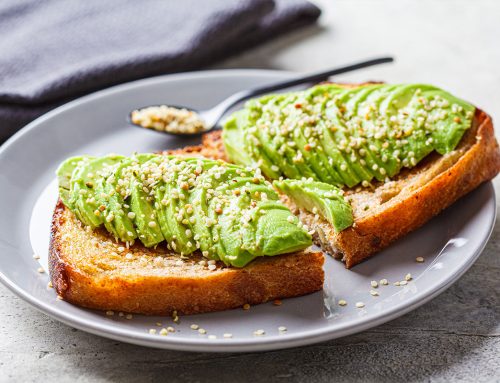Fiber is crucial for maintaining good health. It supports gut health, helps regulate blood sugar levels, and can aid in preventing certain diseases. However, not all fiber is the same. It’s important to consider where your fiber is coming from—whether it’s from fiber bars and powders, whole foods, or a combination of both. Let’s explore the benefits of natural fiber from whole foods.
Natural Fiber from Whole Foods
Natural fiber is found in foods such as fruits, vegetables, whole grains, beans, nuts, and seeds. When you consume fibrous foods like green beans, they go through a beneficial digestive process that involves several stages:
- Mouth: Chewing breaks down the food into smaller pieces, beginning digestion.
- Stomach: Food mixes with digestive juices, breaking down further for easier absorption.
- Small Intestine: Essential nutrients are absorbed into the bloodstream as the food travels through.
- Large Intestine: Water is absorbed, and fiber adds bulk to stool, promoting regular bowel movements.
This process is vital because fiber plays a key role in managing blood sugar, improving gut health, and supporting regularity. Here’s why whole foods are essential for your health:
- Complex Carbs: Whole foods contain complex carbohydrates that take longer to digest and absorb than simple sugars. Soluble and insoluble fibers slow digestion, leading to a more gradual glucose release into the bloodstream.
- Nutrient-Rich: Whole foods are packed with vitamins, minerals, polyphenols, and antioxidants. These nutrients not only help regulate blood sugar but also enhance insulin sensitivity. The antioxidants also protect insulin-producing cells in the pancreas from oxidative stress. A study in the British Journal of Nutrition highlighted the importance of these extra nutrients for stabilizing blood sugar levels. A diet rich in whole foods offers a synergistic effect, where nutrients work together to support metabolic health.
- Digestion and Absorption: The fiber in whole foods slows the digestion and absorption of carbohydrates, preventing sudden blood sugar spikes. This helps manage diabetes and prevent related complications.
- Dietary Diversity: Including a variety of whole foods ensures you get both soluble and insoluble fibers, as well as a broad spectrum of nutrients. Each type of fiber, polyphenol, micronutrient, and antioxidant plays a unique role in digestive health and blood sugar regulation. Soluble fiber slows sugar absorption, while insoluble fiber adds bulk to stool, promoting healthy bowel function.
- Prebiotic Benefits: The fibers in whole foods act as prebiotics, feeding the beneficial bacteria in your gut. These bacteria help maintain gut health and improve digestion. Fermenting prebiotics produces short-chain fatty acids (SCFAs), which provide energy to colon cells, reduce inflammation, and support metabolic health by helping manage blood sugar levels (6). Prebiotics also influence appetite-regulating hormones, aiding in weight management (6, 7).
- Lower Glycemic Index (GI): High-fiber foods generally have a lower glycemic index, causing a slower rise in blood sugar compared to low-fiber foods. This helps prevent spikes that can lead to oxidative stress within cells, increasing the risk of complications like heart disease, neuropathy, and kidney disease. When blood sugar spikes, excess insulin is released, which can lead to increased fat storage and a worsening of insulin resistance. By choosing natural fiber from whole foods, you benefit from both fiber and the additional nutrients that processed supplements might lack. As you plan your meals, aim to incorporate more whole foods to naturally boost your fiber intake.
Why Fiber Supplements May Fall Short for Effective Blood Sugar Control
Fiber supplements, like psyllium husk, methylcellulose, and inulin, are great for digestion. They help you stay regular and avoid constipation by soaking up water and adding bulk to your stool. While some research shows that certain fiber supplements can help lower the glycemic load of a meal, overall, they are not as effective at managing blood sugar levels as natural whole foods. Here’s why:
- Nutrient Synergy: Whole foods contain a mix of fibers, vitamins, minerals, and antioxidants that work together to slow down the digestion and absorption of carbohydrates. This teamwork helps lower the glycemic index (GI) of meals more effectively than fiber supplements alone. A study in the Journal of Nutrition found that whole foods offer better blood sugar control compared to fiber supplements.
- Variety of Fiber Types: Natural fiber provides a range of fibers, including both soluble and insoluble types. This variety is important for optimal blood sugar regulation. Fiber supplements often contain only one type of fiber, which limits their effectiveness. Research in the Advances of Nutrition showed that diets rich in a variety of fibers from whole foods were better at lowering the GI of meals than those relying on fiber supplements (8).
- Prebiotic Effects: The different fibers in whole foods act as prebiotics, feeding good gut bacteria. These bacteria produce short-chain fatty acids (SCFAs) that improve insulin sensitivity and help regulate blood sugar. Fiber supplements may not offer the same prebiotic benefits. A study in Cell Host & Microbe found that whole foods were more effective at promoting a healthy gut microbiome and improving blood sugar control compared to fiber supplements (9).
Sending Health Your Way!
The Tula Clinical Team
Austin MS, RDN, CSR, LDN, CD
Aubree RN, BSN
Tula Takeaways |
|---|
| 1. Whole Foods Are Better for Blood Sugar: Eating fiber from whole foods, such as fruits, vegetables, and whole grains, helps control blood sugar levels more effectively than fiber supplements. This is because whole foods contain a mix of nutrients that work together to slow down how quickly sugar enters your bloodstream. |
| 2. Variety of Fibers Matters: Whole foods provide different types of fiber, both soluble and insoluble, which are essential for keeping your blood sugar stable. Fiber supplements typically contain only one type of fiber, which is not as effective. |
| 3. Good for Your Gut: The fiber in whole foods nourishes the beneficial bacteria in your gut, helping them produce substances that improve how your body uses insulin and regulates blood sugar. Fiber supplements do not always offer the same benefits for your gut health. |
The LIVE TULA blog is informational and not medical advice. Always consult your doctor for health concerns. LIVE TULA doesn’t endorse specific tests, products, or procedures. Use the information at your own risk and check the last update date. Consult your healthcare provider for personalized advice.






